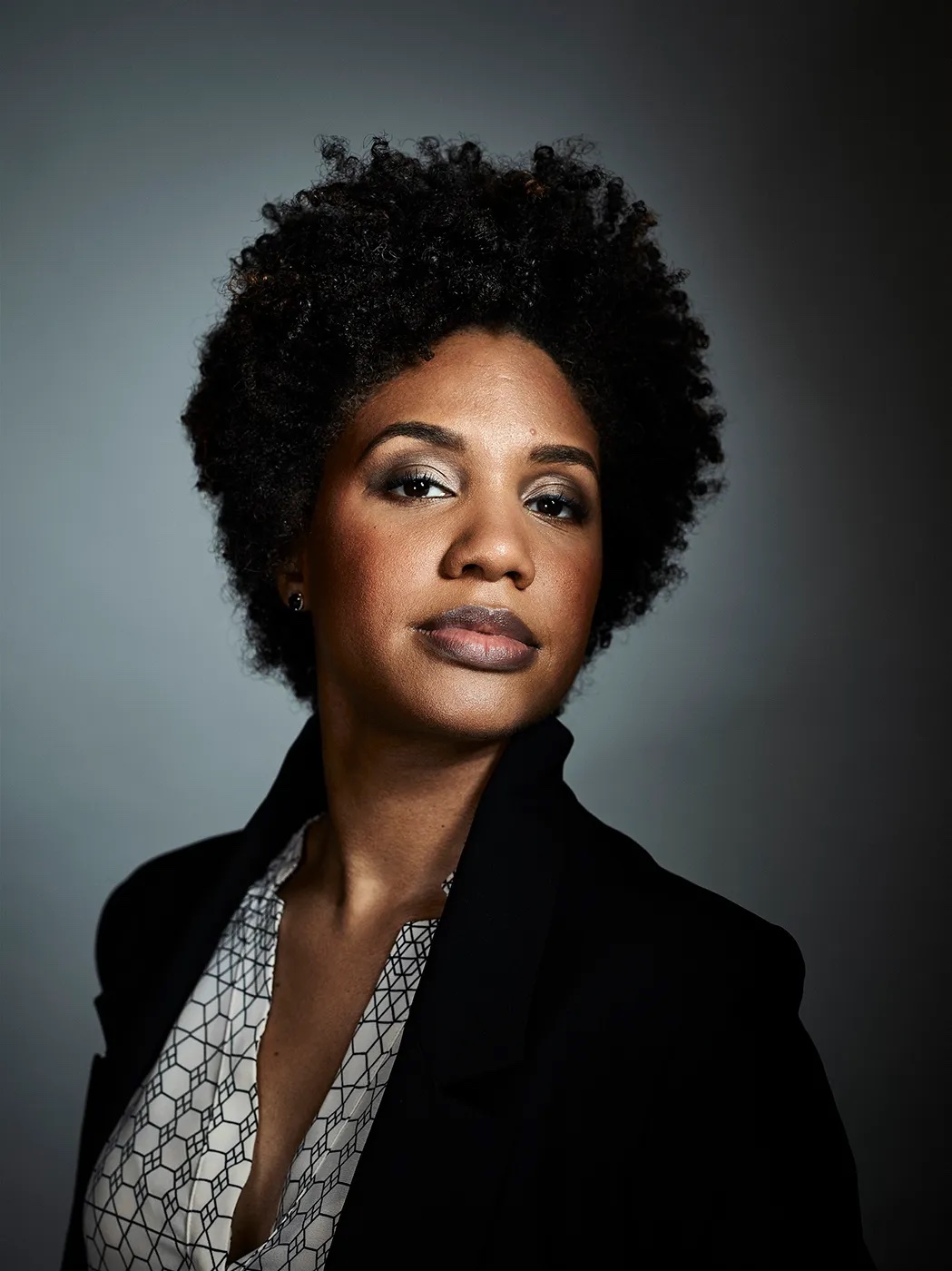Art and Social Justice Through the Lens of Visual Storyteller LaToya Ruby Frazier
Presented by the Tanner Humanities Center, Tuesday, Nov. 14, 7 p.m., UMFA
by Missy Weeks

LaToya Ruby Frazier
Salt Lake City, UT — Praised as “one of the strongest artists to emerge in this country this century” by legendary art critic Jerry Saltz, LaToya Ruby Frazier’s groundbreaking work highlights the realities of contemporary America, from post-industrial decline to social and racial injustices.
Hosted by the University of Utah’s Tanner Humanities Center, Frazier will give the Gardner P. Lecture in the Humanities and Fine Arts at the Utah Museum of Fine Arts, Tuesday, Nov. 14, at 7 p.m. Tickets are free and open to the public but must be reserved in advance.
For more than two decades, Frazier has used photography to document and investigate forgotten narratives of labor, gender and race. Her eye-opening works capture untold stories and histories of marginalized communities and provide a different view of American culture by featuring voices and perspectives traditionally erased from the American narrative.
“LaToya Ruby Frazier builds upon the long legacy of American artists,” said Hollis Robbins, dean of the College of Humanities. “From poet Muriel Rukeyser in the 1930s to photographer and filmmaker Gordon Parks in the 1940s and 1950s documenting the struggles and the humanity of rural workers in America with extraordinary eloquence.”
Frazier’s portfolio includes the work “Flint Is Family,” a five-year chronicle of the water crisis in Flint, MI. Her original photo essay was named one of the “25 Most Influential Works of American Protest Art Since World War II” by The New York Times. Other recent projects include “The Notion of Family,” which chronicles the lives of her family surviving environmental racism in the historic steel mill town of Braddock, PA. “The Last Cruze” explores the devastation wrought by the closure of a General Motors plant in Lordstown, OH. Frazier also captured portraits of Breonna Taylor’s family for Vanity Fair, using her art as an avenue for visual justice and social change.
“Frazier’s powerful work in Flint, Braddock, Lordstown and Pittsburgh illuminates the devastating impact on communities and families caused by industrial waste and inequity,” said Crystal Rudds, assistant professor of English. “Her critical photography is a study in method, form and empathy. She lifts the social veil and allows us to glimpse sights extraordinary for their everydayness: a black boy tying a horse at sunset, a courthouse wedding juxtaposed against a water crisis, and plastic bottles held up to catch the light. Not only do we learn about art from her compositions, but we learn how art can spur collaborative solutions for environmental justice.”
A former MacArthur Fellow, Guggenheim Fellow and winner of the Carnegie Prize, Fraizer has captivated audiences with her poignant works, trailblazing as a leading figure in contemporary art. Her works have been showcased in solo exhibitions at institutions such as the Museum of Modern Art (MoMA), The Brooklyn Museum, and the Seattle Art Museum.
About LaToya Ruby Frazier
Frazier was born in 1982 in Braddock, PA. Her artistic practice spans a range of media, including photography, video, performance, installation, art, and books, and centers on the nexus of social justice, cultural change, and commentary on the American experience. In various interconnected bodies of work, Frazier uses collaborative storytelling with the people in her artwork to address industrialism, Rust Belt revitalization, environmental justice, access to healthcare, access to clean water, Workers’ Rights, Human Rights, family, and communal history. This builds on her commitment to the legacy of 1930s social documentary work and 1960s and ‘70s conceptual photography that addresses urgent social and political issues of everyday life.
About The Tanner Humanities Center
The Tanner Humanities Center advances humanities exploration and engagement through public outreach, academic research, and educational enrichment. The activities reflect a vision of the humanities as relevant, stimulating, and cutting-edge but essential for developing critical thinking, tolerance, and respect on campus and in the community.
MEDIA CONTACTS
Missy Weeks, Tanner Humanities Center
missy.weeks@utah.edu |801-581-8879
Published October 31, 2023
